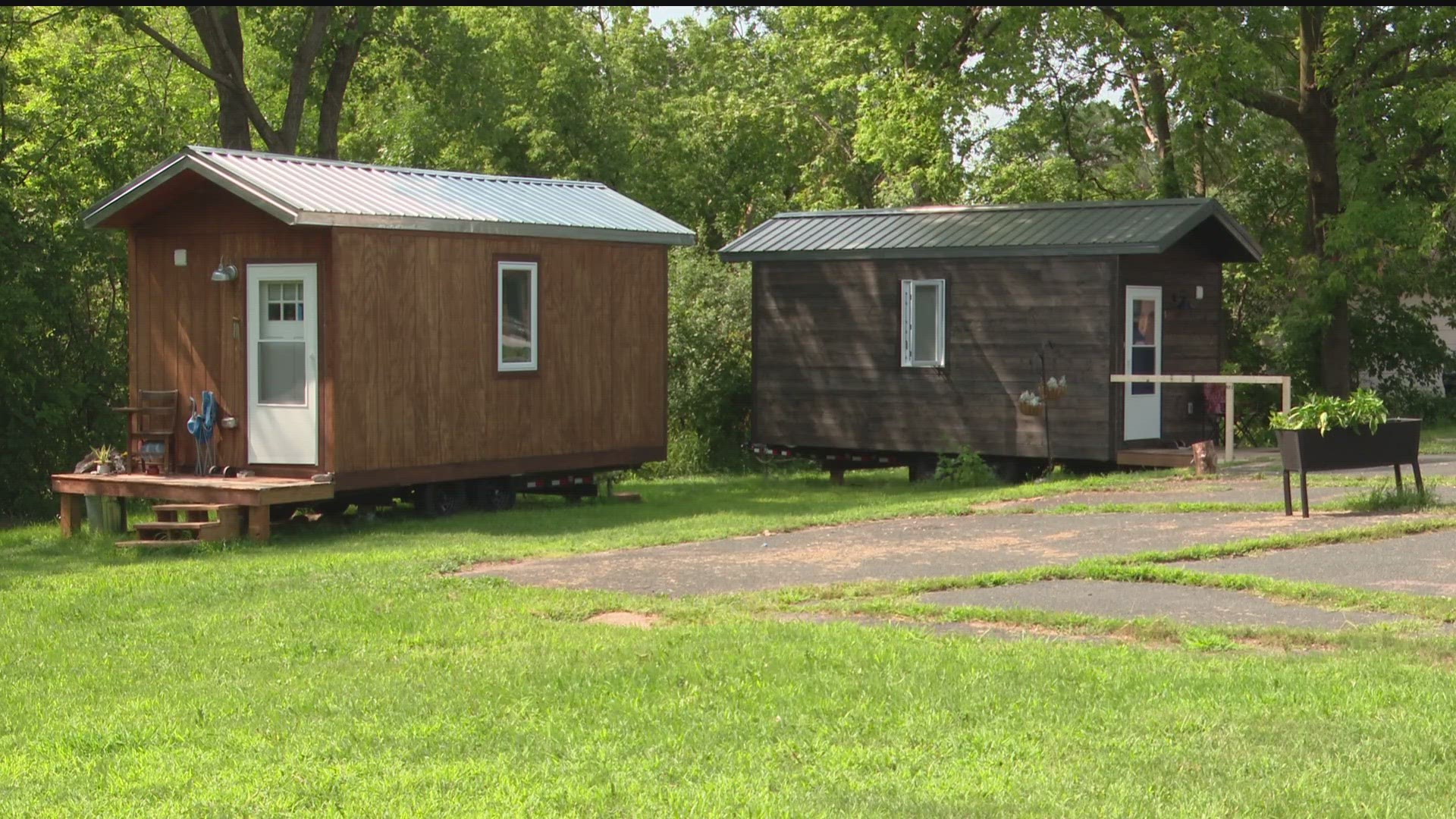ROSEVILLE, Minn. — A new state law allows places of worship to host people in tiny homes as part of an effort to fight chronic homelessness.
The "sacred settlements" model developed by the Twin Cities nonprofit Settled is based on the philosophy of creating a community around those who've spent years in isolation searching for a permanent place to live.
"We refer to it as full community," Fred Ogimachi of Settled told KARE.
"If we understand the reason for their chronic homelessness is that lost community, the way to restore it is to start by building community."
Currently there are two such settlements, including one with six tiny homes at Mosaic Christian Community in St. Paul and one with two tiny homes at Prince of Peace Lutheran Church in Roseville.
We'll probably see more of these mini villages spring up in faith communities because of the new law that goes into effect in January, spelling out that sacred settlements on church property are legal if they meet other planning and zoning conditions.
"All of the major communities of faith have tenets that talk about caring for the poor, caring for the disadvantaged, loving your neighbor. That’s what this model allows the church to do," Ogimachi explained.
Valerie Roy had spent the better part of her adult life living in cars, vans, and school buses when she learned there was a tiny home option at Prince of Peace.
"I live in a fabulous tiny home. It's much better than living in a car or a shelter, which has been by situation for 12 years," Roy told KARE Monday.
Roy has a business degree from Arizona State University but has been unable to latch onto the kind of job that can pay the rent. She spent years living in a school bus bouncing across six states working as a waitress or other jobs, while dealing with Post Traumatic Stress Disorder.
Now Roy, who is 53, works at the Saint Paul Farmer's Market and has a tiny home that's her own private space.
"I feel extremely safe. Yes. Everything’s built to code or better. Very efficient. Very, very well-kept," Roy explained.
"Everybody that’s involved is super friendly, super kind. And this just has so much more dignity wrapped around it than a common shelter."
What makes this model unique is that some of the village residents "intentional neighbors" — people who've never experienced homelessness but have volunteered to live in one of the tiny houses.
"By doing this you’re creating a community where you have resourced people around people who can all of a sudden feel like there are other people who care. There are people who love them, people who really are invested in them," Ogimachi explained.
Roy was among those who testified in favor of the bipartisan House bill authored by Rep. Athena Hollins of St. Paul. The legislation was needed because some local communities were beginning to push back against the idea of these settlements.
Leaders of the Settled nonprofit held several meetings with the City of Roseville explaining the concept. Eventually the League of Minnesota Cities had input on the bill's language, to ensure cities still had power to regulate the settlements while respecting federal laws relating to religious property rights.
"The legislation not only provided a platform for us to talk to the cities, but also it’s generated some conversation about the chronically homeless that actually wasn’t occurring," Ogimachi remarked.
Most tiny houses don't come with plumbing, but the church's facilities are open to Valerie, as is the common area that includes a full kitchen. Valerie and her intentional neighbors can come and go as they pleases in the common spaces.
Some faith communities that can't host tiny homes yet, are still involved in building tiny homes. In fact, the eight tiny homes in the existing settlements were built by eight different faith communities.
Most of the home construction has taken place at the Woodland Hills Church in Saint Paul, but some of the faith groups are building homes in their parking lots.

